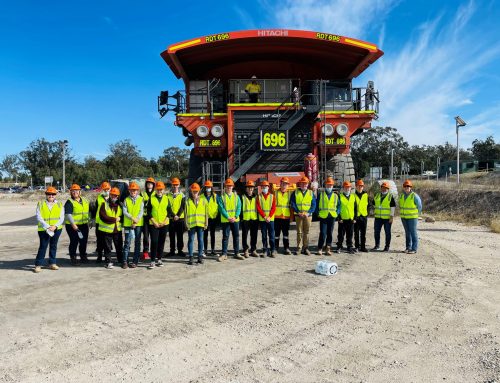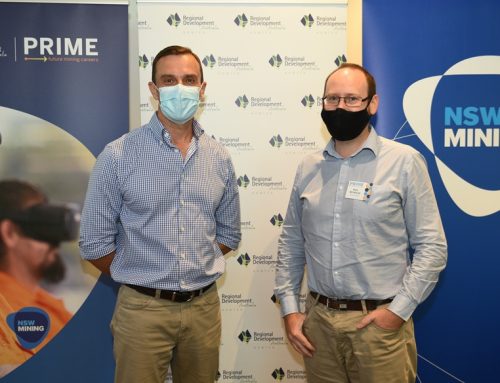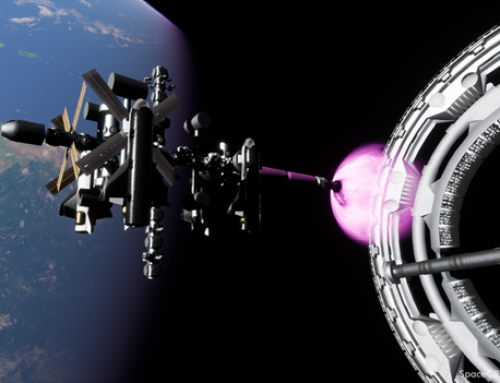Mr Steve Mitchell, Lockheed Martin Australia (LMA) Fellow, Master Systems Architect and the company’s Australian Chief Architect for Integrated Air and Missile Defence, was special guest presenter at the most recent Altitude Accord event held on Wednesday 6th October. 60 University of Newcastle students and researchers were treated to personal insights from Steve during his presentation about LMA’s federated system of systems engineering model: a model designed and implemented to manage the company’s family of submarine combat systems used in the construction and modernisation of the US and Australian submarine fleets.
Having been part of the corporation in various capacities since 1978, Steve addressed the value proposition for model-based systems engineering (MBSE). For over a decade MBSE advocates have claimed substantial benefits compared to traditional document-centric systems engineering, but actual proof has been elusive. On the Submarine Warfare Tactical Systems (SWFTS) program, which started the transition to MBSE in 2010, concrete benefits have been achieved. That program has recently published hard evidence of an 18% reduction in the cost of systems engineering, significant savings in integration and test, and a 9% reduction in residual defects in the delivered system. A positive return on investment was achieved within a year of completing the two-and-a-half-year transition effort.
Steve took students on a journey through the development of LMA’s model-based system. He concluded on an important and poignant note – LMA has proved that model-based systems engineering is more efficient than traditional systems engineering. He said defects are discovered earlier and the program delivers higher quality results using model-based systems engineering. He explained why this is important: lives are at stake every time you submerge a submarine, they are warships and the impacts of quality are real. He stressed that engineering rigour and good systems engineering are critical.
Steve’s presentation resonated with the student audience who represented a cross-section of the University of Newcastle engineering cohort. Aerospace Systems engineering students, software, electrical and computer systems engineering students across all four year groups as well as University academics and staff joined the hour long presentation which also included practical tips and information for students looking for a career at LMA.
Greg Mitchell, LMA’s Deputy Chief Engineer of Rotary Systems, who is based in Williamtown overviewed the company’s ‘in-region’ presence and the various projects now underway locally due, in part, to the location here of the F-35 Joint Strike Fighter. Programs like the Tactical Defence Radar System, Deployable Duty Facilities and F-35 have facilitated growth of the local workforce from around 30 in 2015 to over 200 now in 2021. With the technical and engineering workforce across those programs now approaching 150 personnel.
Excitingly for Hunter students, Greg announced that LMA will bring a successful intern and WIL program, established at the company’s Australian headquarters in Adelaide, to the Hunter in 2022. The program is additional to the LMA’s graduate program, which is continually accepting expressions of interest, and will commence with two positions for University of Newcastle students in 2022. Greg and Amanda DeDear, LMA’s Early Careers Manager, proffered practical advice in response to related student questions, directing them to LMA’s careers portal where all early career opportunities are detailed as well as the University of Newcastle Careers Page, which, as part of the Altitude Accord partnership, will now also promote career opportunities at LMA.
THE ALTITUDE ACCORD – BACKGROUND
The Altitude Accord is a strategic and operational partnership between Regional Development Australia (RDA) Hunter, Lockheed Martin Australia (LMA) and University of Newcastle to help grow a ‘5th Generation’, technology-enabled workforce to support LMA’s future job requirements in integrated battle management.
Defence projects such as the F-35 deliver significant economic impact in the Hunter region, bringing new technology and related new, high-value, skilled jobs. The Altitude Accord aims to develop job-ready skills by supporting curriculum development across relevant STEMrelated University of Newcastle courses; facilitating engagement with visiting fellows; and co-ordinating industry and course-appropriate site visits.
Launched at RDA Hunter’s Technology Expo held at FIGHTER WORLD, Williamtown on 13th December 2018, the partnership is part of LMA’s commitment to investing in genuine opportunities for Australians in regional centres. RDA Hunter’s role in the partnership is to connect LMA with the University of Newcastle and its College of Engineering, Science and Environment as well as the region’s wider defence industry, education and government sectors to help ensure an adequate flow of suitably qualified people to meet its increased demand.






